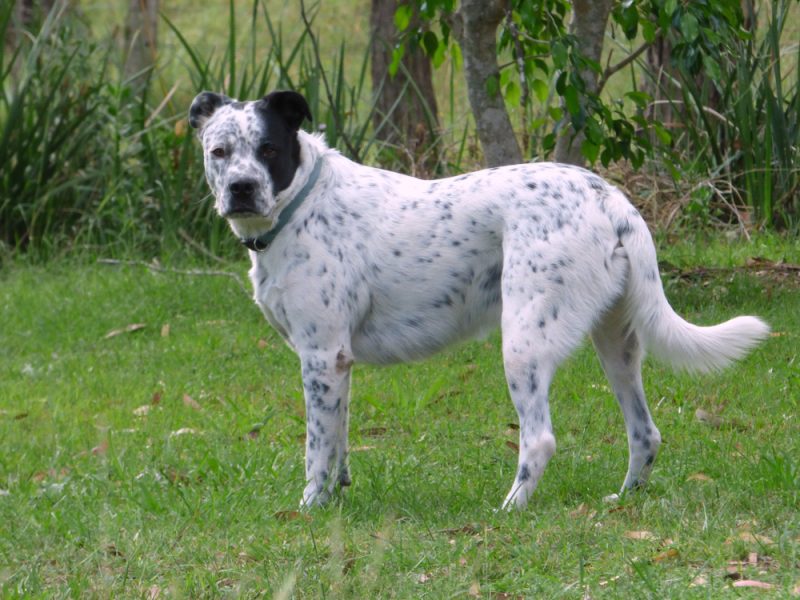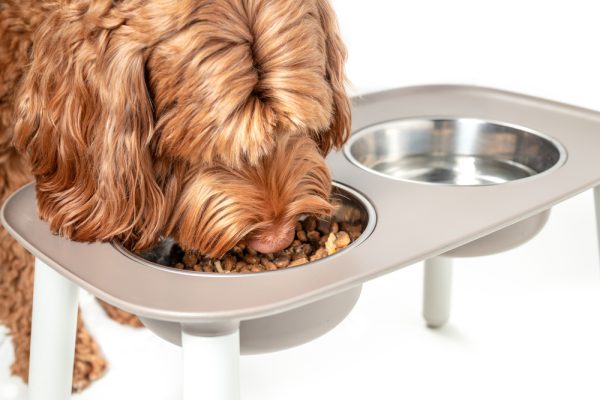We all want the best for our pets. After all, we consider them family members. Therefore, it’s understandable why you might want to give your pup some calming green tea. Some scientific evidence suggests green tea may have human health benefits like cardiovascular health and the prevention of liver disease. However, it’s not always possible or safe to apply them across species lines.
We don’t suggest giving your pup green tea because some of the components like caffeine and flavonoids are harmful to dogs. However, you can find canine supplements with L-theanine extracted from green tea for calming effects and these are safe to give.

Benefits of Green Tea to Dogs
Deciding whether a pet can have certain foods or beverages requires research. You shouldn’t rely on anecdotal information or social media to make these critical decisions. You must also look at the quality of the evidence. For example, one study examined the effect of green tea on insulin resistance. This condition occurs when a dog can’t absorb glucose from their blood properly as their body doesn’t respond to insulin well.
The researchers separated a sample size of obese dogs into a treatment group that was given a green tea supplement and a control group that didn’t receive it. The team measured the animals’ mean insulin sensitivity index after 12 weeks. They found improved insulin sensitivity in the treated canines. Does that mean it’s a good way to control insulin resistance and prevent diabetes?

Unfortunately, it’s not based on this one experiment. It’s worth noting that it involves only 10 dogs. Scientists can’t draw meaningful conclusions from such a small sample size, nor should you.
Another study considered the effects of green tea extract in dogs with osteoarthritis. After 60 days, animals in the treatment group showed significantly less pain. Does that make green tea efficacious?
While the study involved 40 dogs, the supplement that the researchers gave the animals also included extracts from the Boswellia serrata plant, glucosamine, and chondroitin sulfate. We can’t necessarily say that green tea was a major player. Remember that this experiment was conducted under controlled conditions with veterinary oversight. The takeaway is that there isn’t enough evidence to support its use.
Risks of Feeding Green Tea to Dogs
We mentioned being cautious about giving your dog green tea. The first red flag is its caffeine content. One cup contains about 29.4 milligrams. While that might not be an issue for you, it can cause high blood pressure, hyperactivity, vomiting, and GI distress. Canines are more sensitive to its effects than people. Remember that these issues may last 12-24 hours after ingestion.
The other thing to consider is the amount. The lethal dose is 100 to 200 milligrams/kilogram for most dogs but some dogs are much more sensitive to caffeine than others and serious effects can be seen well below this dose. A cup of green tea could cause mild to moderate signs of caffeine toxicity in a small dog. Since the effects are dose-dependent, a small animal is at a greater risk of adverse outcomes than a large dog.
You might wonder if decaffeinated green tea is an alternative option. While it doesn’t have caffeine effects, green tea could be a diuretic. Diabetic animals or those with kidney disease would be especially sensitive to this effect.
Another concern is the ingredients in the green tea. Some beverages may contain other problematic items like sugar and lemongrass. The same caution exists whether you brew it from tea bags or opt for bottled products. Besides, your dog may not like the taste.

Green Tea Extracts
L-Theanine
L-theanine is a substance that can be extracted from green tea. You can find it in canine supplements and it is safe in this form. L-theanine has stress-relieving properties as it acts on receptors in the brain.
Epigallocatechin Gallate
A green tea extract containing over 55% of the flavonoid epigallocatechin gallate (EGCG) was given to dogs on an empty stomach, which led to harmful kidney, gastrointestinal, or liver toxicities. EGCG is responsible for many of the beneficial effects of green tea. Unfortunately, it appears to be toxic to dogs that ingest it on an empty stomach and we recommend steering away from this completely.

Frequently Asked Questions (FAQ)
Is There Any Safe Amount of Green Tea?
We recommend not giving your pet any amount of green tea for the reasons we’ve detailed. Your dog can meet their hydration needs with plain water. Your pet doesn’t need an incentive like taste to drink more.
What About Green Tea Supplements?
Human supplements could contain more concentrated forms of some of the harmful green tea components. However, canine supplements containing L-theanine extract are generally safe. We recommend discussing any supplement with your vet.
If you need to speak with a vet but can't get to one, head over to PangoVet. It's our online service where you can talk to a vet online and get the personalized advice you need for your pet — all at an affordable price!

Conclusion
Green tea may hold some promise for people on several fronts. However, research is ongoing. We can’t necessarily extrapolate those findings to our pets. Humans can safely consume many things that would be toxic for our dogs, such as chocolate, grapes, and onions, but our digestive systems differ, allowing us to metabolize things differently. The same applies to green tea.
You may enjoy the slight buzz green tea gives you, but it doesn’t mean your dog will react the same. Its caffeine content is problematic, along with its diuretic properties and flavonoids. These qualities put green tea squarely on the list of things not to share with your pup. A bowl of fresh, cold water will satisfy your pet much more.
See Also:
- Can Dogs Have Vanilla? Vet-Verified Nutrition Facts & FAQ
- Can Dogs Eat Wasabi? Vet-Verified Nutrition Facts & FAQ
Featured Image Credit: New Africa, Shutterstock


















